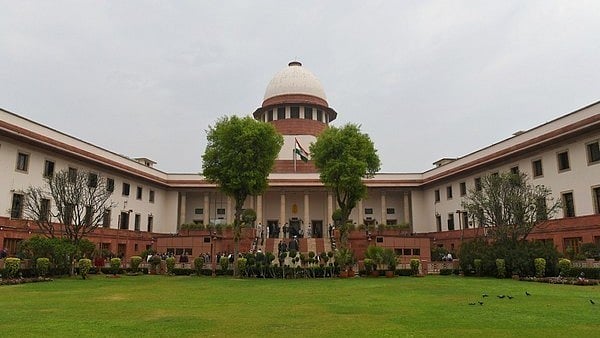
The Supreme Court of India.
Credit: PTI Photo
New Delhi: The Supreme Court on Tuesday affirmed a resolution plan made by Piramal Capital & Housing Finance for erstwhile Dewan Housing Finance Corporation Ltd (DHFL), by setting aside the National Company Law Appellate Tribunal’s (NCLAT) order that asked the lenders of the debt-laden firm to relook into certain parts of the resolution plan that ascribed a value of only Rs 1 to Rs 45,000 crore worth of bad loans (avoidance and fraudulent transactions) of DHFL.
A bench of Justices Bela Trivedi and Satish Chandra Sharma also dismissed several appeals including one by former promoter Kapil Wadhawan, challenging the resolution plan on the grounds that Piramal acquired the Rs 90,000-crore company for over Rs 34,000 crore.
The court also dismissed appeals filed by fixed deposit holders and non-convertible debenture holders, including 63 Moons Technologies, who were against the mechanism of distributing the recoveries, saying the treatment given to them violated their rights to receive full payment of their deposits.
The court, however, asked the NCLAT to take a fresh call on how and under which provisions of the Insolvency and Bankruptcy Code 2016 the applications related to avoidance transactions are to be decided.
"The recoveries or benefits that may follow from such avoidance applications would be appropriated in favour of the committee of creditors (CoC) in case of avoidance applications under Section 43, 45 and 50, and in favour Piramal Capital in case of applications under Section 66 of the 2016 law," it said.
While Section 43, 45 and 50 refers to "avoidable transactions," specifically preferential, undervalued, and extortionate credit transactions, Section 66 refers to fraudulent trading or wrongful trading, the court noted.
DHFL had gone into red after it failed to repay its debt worth Rs 90,000 crore to the lenders. It suffered debt resolution under the IBC in November 2019. The total value of future recoveries from such avoidance applications reportedly stood at around Rs 45,000 crore.
Piramal Capital and the DHFL’s committee of creditors led by Union Bank of India challenged the NCLAT January 22, 2022 order, contending that it misinterpreted the 2016 Code and specially Section 66 of the law. It was contended that the recoveries under Section 66 are to be returned to the corporate debtor as its asset since most of these transactions by the former management were irregular or fraudulent, and the banks did not expect to get any money out of it.
According to lenders, the NCLAT had incorrectly held that it is not within the commercial wisdom of the CoC to decide the treatment of recoveries from avoidance applications.
